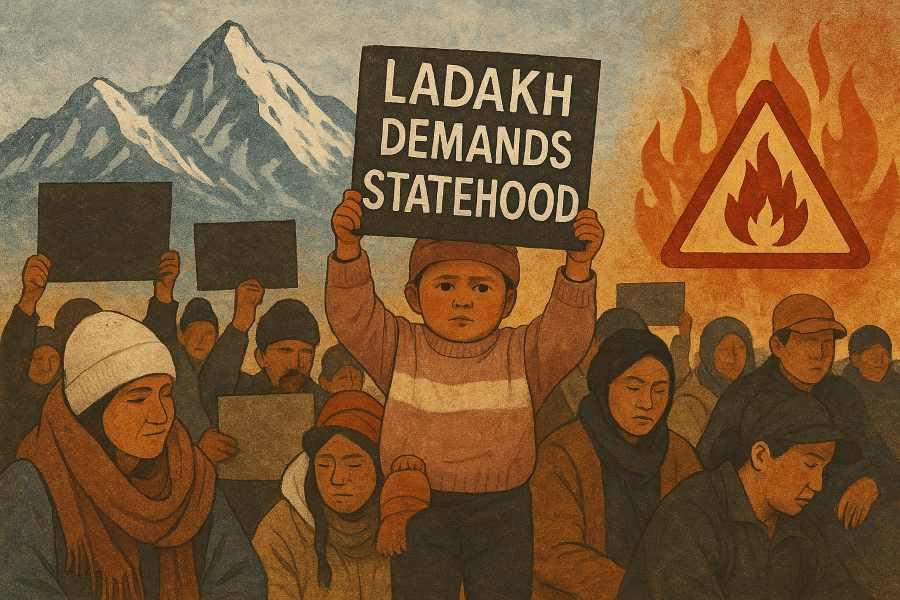By ignoring Ladakhis, the Centre is playing with fire on a sensitive frontier.
FOR A GOVERNMENT that believes only in one-sided dialogue—merely expressing “Mann ki Baat” and refusing to answer questions from opposition parties, the media, or social activists—its handling of the situation in the sensitive Ladakh region is perplexing.
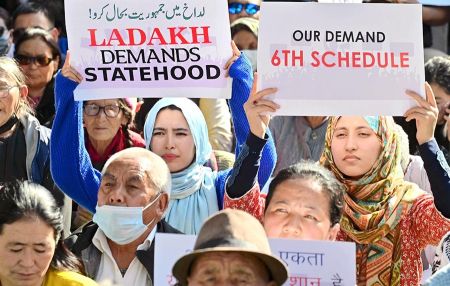 The residents of the region, almost all belonging to tribal communities, have been protesting peacefully for years to demand greater autonomy and a say in their own administration.
The residents of the region, almost all belonging to tribal communities, have been protesting peacefully for years to demand greater autonomy and a say in their own administration.
This demand predates the bifurcation of the former state of Jammu and Kashmir into two Union Territories in 2019.
The natives of Ladakh, a region almost three times the size of Jammu and Kashmir, had earlier sought separation because people from Jammu and Kashmir dominated state politics. In that sense, the creation of a separate Union Territory of Ladakh was welcome.
However, while the central government granted Jammu and Kashmir Union Territory an elected assembly, it did not extend the same provision to Ladakh. Instead, Ladakh was left under the administration of a Lieutenant Governor and the bureaucracy.
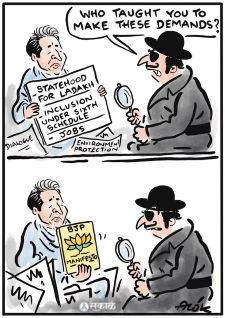 The Ladakhis, who had long demanded a greater say in their local affairs, had a justifiable grievance. They chose the democratic path of peaceful protest, which continued despite prolonged government inaction and the harsh conditions in which these demonstrations were carried out.
The Ladakhis, who had long demanded a greater say in their local affairs, had a justifiable grievance. They chose the democratic path of peaceful protest, which continued despite prolonged government inaction and the harsh conditions in which these demonstrations were carried out.
Several Ladakhi leaders spearheaded the movement, with environmentalist and innovator Sonam Wangchuk lending his support through fasts and consistent advocacy.
In September last year, a group of Ladakhis led by him undertook a march to Delhi to present their demands. Yet no central leaders agreed to meet or even speak with them. They were confined to Ladakh Bhavan and not allowed to stage a peaceful protest at the designated site, Jantar Mantar.
The country has already paid a heavy price for neglecting certain regions of the Northeast. History must not be allowed to repeat itself in Ladakh.
Their demands are neither radical nor unreasonable. They seek constitutional safeguards to protect tribal areas from encroachment and exploitation.
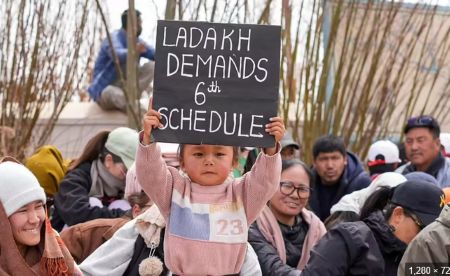
Alongside full statehood for Ladakh, they want inclusion in the Sixth Schedule of the Constitution, which provides for regional self-governance institutions, job reservations for locals, and one parliamentary seat each for Leh and Kargil.
Their biggest concerns are demographic changes and the protection of tribal lands. They fear that outsiders will set up industries, establish trade networks, purchase land, and bring in a migrant workforce, leading to demographic shifts and loss of employment opportunities for locals.
The region—particularly Leh and Kargil—has also become a major tourist destination, giving rise to the problem of over-tourism, which is affecting the local environment and youth in several ways.
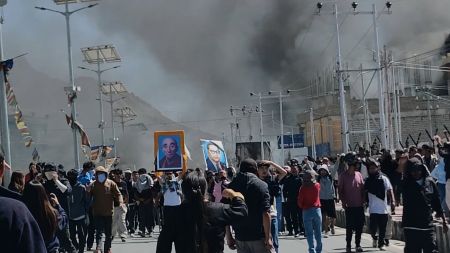
Smoke billows from buildings, including the local BJP office, set ablaze during protests in Leh town, Ladakh, on Sept. 24, 2025.
The sensitivity of Ladakh cannot be overstated. It borders both China and Pakistan, yet has a population of barely three lakh. Ladakhis are known to be staunch nationalists and serve as the country’s first line of defence.
Against this backdrop, the arrest of Sonam Wangchuk under the stringent National Security Act (NSA) is neither justified nor desirable.
He is a respected figure not only in Ladakh but across the country. His protests have always followed the Gandhian tradition of non-violence, and he even ended one of his fasts after a section of youth turned violent.
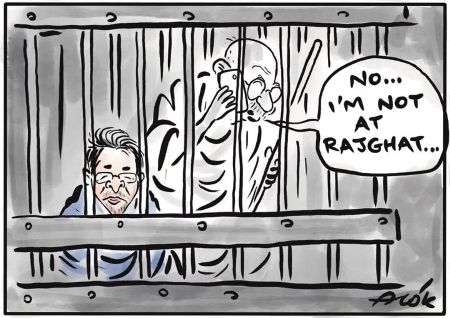
Far from being a threat, he is regarded as a sane and constructive voice, and even various government departments have sought his advice on important issues. The government’s silence over baseless insinuations that he was “in touch with” Pakistanis is shocking. It must stop playing with fire.
It is high time the government reaches out to the people of Ladakh and listens to their concerns. Its adamant stance is doing harm not only to Ladakhis but to the nation as a whole.
The country has already paid a heavy price for neglecting certain regions of the Northeast. History must not be allowed to repeat itself in Ladakh. ![]()
Republished by AIDEM under a content-sharing arrangement with Punjab Today.
________
Also Read:
EDELWEISS: SERIAL OFFENDER
The Indian Constitution Under Threat
Disclaimer : PunjabTodayNews.com and other platforms of the Punjab Today group strive to include views and opinions from across the entire spectrum, but by no means do we agree with everything we publish. Our efforts and editorial choices consistently underscore our authors’ right to the freedom of speech. However, it should be clear to all readers that individual authors are responsible for the information, ideas or opinions in their articles, and very often, these do not reflect the views of PunjabTodayNews.com or other platforms of the group. Punjab Today does not assume any responsibility or liability for the views of authors whose work appears here.
Punjab Today believes in serious, engaging, narrative journalism at a time when mainstream media houses seem to have given up on long-form writing and news television has blurred or altogether erased the lines between news and slapstick entertainment. We at Punjab Today believe that readers such as yourself appreciate cerebral journalism, and would like you to hold us against the best international industry standards. Brickbats are welcome even more than bouquets, though an occasional pat on the back is always encouraging. Good journalism can be a lifeline in these uncertain times worldwide. You can support us in myriad ways. To begin with, by spreading word about us and forwarding this reportage. Stay engaged.
— Team PT

